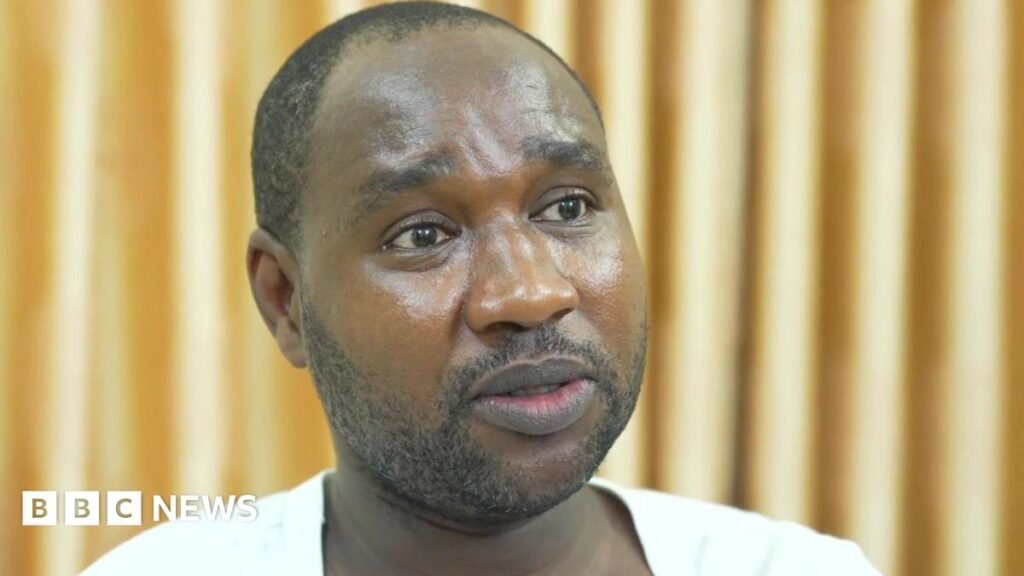Blasphemy is an offense under Islamic law – Sharia – which runs alongside secular law in 12 northern states. It is also an offense under the Nigerian Criminal Law.
Bala, who renounced Islam in 2014, said there were times during his imprisonment when he felt he “might not make it out alive”. He feared he might have been targeted by guards or other inmates at the first prison he served in, Kano, a predominantly Muslim city.
“There is freedom, but there is also a deep threat that I have to face,” he said. “All these years, these threats, maybe they are.”
He could have been inside much longer if not for an appeals court judge who last year commuted the original sentence to 24 years, calling it “excessive”.
As he left the prison in the capital, Abuja, Bala looked tired but in good spirits, wearing a white T-shirt, khaki shorts and flip-flops. He walked out with his beaming lawyer by his side.
“Everything is new for me. Everything is new,” he said, enjoying his newfound freedom.
Bala, an outspoken religious critic, was arrested after a group of lawyers filed a complaint with the police over the social media post.
He then spent two years in prison awaiting trial before being sentenced in 2022.
At the time, Ball’s guilty plea confused many, even his legal team, but he stands by his decision, saying it took some pressure off those who supported him, including his lawyers, friends and family.
“I believe what I did saved not only my life but also the people in Kano,” he said.
“Especially the ones that were attached to my case, because they are also a target.”
His conviction was widely condemned by international human rights groups and sparked a debate about freedom of speech in Nigeria.
His detention also sent shockwaves through Nigeria’s small atheist and humanist communities, and his release came as a relief to many, but concerns remain.
“It’s thank you and no thank you,” said Leo Igwe, founder of the Humanist Association of Nigeria.
“Thank you that he came out, thank you that he is a free man. But no thanks, because he has a stain on him like he committed a crime. For us, in the Association of Humanists, he did not commit any crime.”
As for Ball, he’s looking to catch up – including getting to know his young son, who was just six weeks old when he was jailed. But he said he has no regrets.
“My activism, my social media posts, I always knew the worst was going to happen. When I made the decision to come out, I knew I could be killed. I knew the danger and I decided to do it anyway.’

